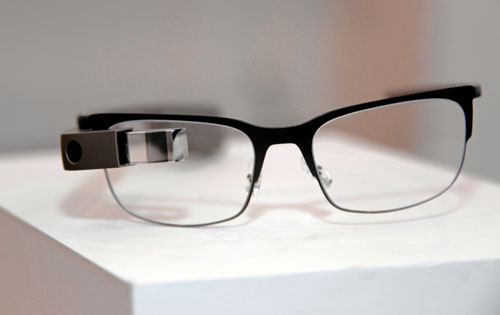A Fort Greene dance center is trying to use Google’s nascent face-computer to help people with Parkinson’s disease get their groove back.
The Mark Morris Dance Group won a $25,000 grant in early July to come up with a Google Glass app to help Parkinson’s sufferers. The Lafayette Avenue center has been running dance-therapy classes for 13 years, and it hopes to use the head-mounted smartphones to bring the techniques into people’s homes.
“We’re thinking about ways we can expand what we do in the dance class beyond the studio,” said David Leventhal, program director of Dance for PD, a collaboration between the Mark Morris Dance Group and the Brooklyn Parkinson Group.
Leventhal’s program already offers a DVD of its routines but he thinks that Glass, which can be controlled using voice commands or a touchpad located on the side of the glasses, will free up people’s hands and allow them to do the exercises wherever and whenever they want.
“We want to offer the lessons in the most portable way possible,” he said.
The class uses music and repetitive movement to help people with Parkinson’s regain control of their bodies and, sometimes, become unstuck when their limbs aren’t responding to their brains’ commands, Leventhal said. The practice and pace provided by dance instruction works as therapy and as a coping mechanism for the acute onset of symptoms, according to a woman who suffers from the disease, runs a therapy class, and helped with the initial planning of the Glass project.
“One of the many ways in which Parkinson’s affects you is that it affects the way you move — your posture, your stride, your balance,” Pamela Quinn said. “Dance is an art form that deals with these very issues.”

Dancing makes people focus on their bodies, and the music provides a rhythm for them to move to, Quinn said.
“It provides a structure that can be used to practice movement,” she said.
Google issued the grant as part of a contest that garnered 1,300 applications. The company selected five winners to receive cash, a set of the face-computers, a trip to Google’s headquarters for training, and access to developers.
The marketing company SS+K is helping Mark Morris engineer the software. Kevin Skobac, who works on digital strategy for the company, said a major limitation of Glass is that the battery life is short. That means the Parkinson’s dance app will have to limit the length of videos it plays through the optical display, which projects an image in front of the wearer’s eye, he said. Instead of a full video routine, it will probably play a short clip followed by some type of audio cue or music that keeps the rhythm going, he said.
This is the type of innovation Google is trying to promote, he said.
“Google is trying to push boundaries,” he said.
























